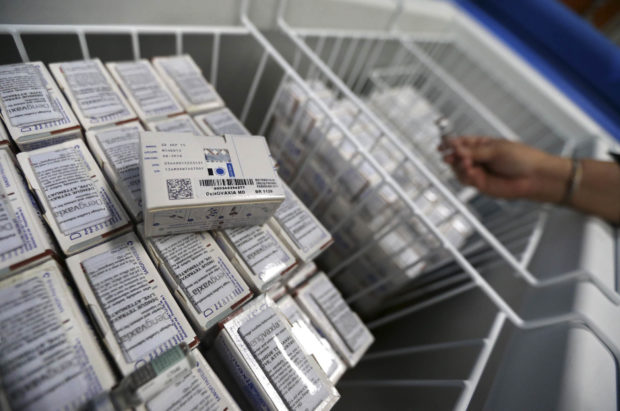
INQUIRER PHOTO/LYN RILLON
The Department of Health has sent official demand letters to Sanofi Pasteur following the controversy over the Dengvaxia anti-dengue vaccine.
Among others, the DOH laid down its demand for the refund of P 1.4 billion worth of Dengvaxia vials which were unused in the DOH’s immunization program.
The demands were stated in the agency’s letter to Thomas Triomphe, head of Sanofi Pasteur Asia Pacific.
The DOH also requested Sanofi Pasteur to conduct zero-testing of more than 830,000 children who received the vaccine to determine if they had previous dengue infections.
The agency said the pharmaceutical firm should use “a newly developed test to determine their pre-vaccination status at no cost to the government.”
In addition, the DOH requested for documents on all ongoing clinical trials and other studies involving Dengvaxia in the Philippines.
The agency also sought “proof that they (Sanofi Pasteur) have passed ethics review standards of the Philippine Council for Health Research and Development.”
In a statement, health secretary Francisco Duque III said “the DOH has yet to receive an official response from Sanofi Pasteur on the demand letters.”
“The Dengvaxia vaccine which Sanofi Pasteur aggressively promoted and sold to the Philippine government has undeniably failed to deliver its supposed clinical benefit and safety claims, hence, considered defective under Philippine civil laws,” Duque stressed.
Sanofi Pasteur admitted late last year that the anti-dengue vaccine may increase the risk of severe dengue in those who had no prior dengue infections.
This prompted the DOH to suspend its vaccination program and to conduct close monitoring, surveillance and care for the more than 830,000 children who received the vaccine.
Duque also clarified that based on data from the DOH epidemiology bureau, four of 17 patients who died after being given Dengvaxia were found to have died from dengue shock syndrome.
“Based on the Dengvaxia surveillance update on January 10 from the epidemiology bureau, four of the 17 cases being looked into identify dengue shock as cause of death,” he said.
The other deaths, he added, were among children who had other illnesses or “co-morbidities.”
Duque, however, emphasized that there was no conclusion yet as to Dengvaxia as responsible for the deaths of the recipients of the vaccine.
“We cannot answer that as of now because our experts (from the Philippine General Hospital) are still studying the clinical records,” he stressed.
The DOH also expressed willingness to cooperate with ongoing investigations being conducted by the Department of Justice and the Public Attorney’s Office.
“We welcome these investigations as complementary to our efforts in finding the truth about this matter,” Duque said.